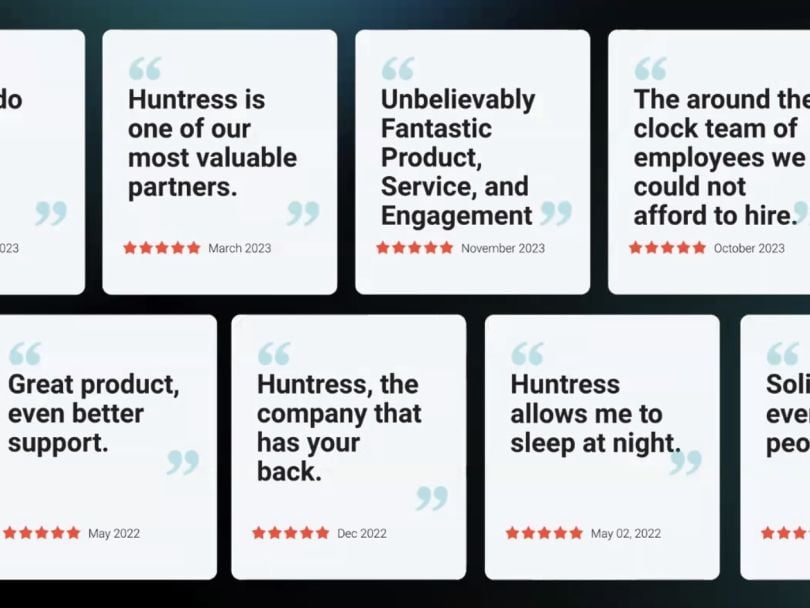In the age of internet consumerism, authenticity is worth its weight in gold.
The vast majority of Americans are shopping online — 70 percent, and climbing — and with the rise of SaaS companies creating more software every day, it can be easy to feel overwhelmed by advertisements for the latest brand or product.
How does the discerning internet customer choose their next product?
Authenticity. According to a survey from Social Media Today, 90 percent of millennials said that brand authenticity is key when making a purchasing decision, and of that group, 52 percent would recommend that brand to their peers.
Trust is the trade of a cybersecurity organization like Huntress, where authenticity is a central tenet to the marketing work of Vice President of Brand and Creative, Nicole Eversgerd. For the team at Huntress, authenticity comes from prioritizing the human element over the sale itself, and a business that takes the time to understand the needs of a customer — including the language a customer uses to express those needs — is a step ahead of the competition.
“The smartest businesses I’ve been a part of understand that when you put the human experience first, the sales will follow,” said Eversgerd.
Built In sat down with Eversgerd to learn more about how authenticity has always been a part of her career in marketing, how Eversgerd applies it to her work at Huntress and how any marketing team can be more successfully authentic.
Founded by former NSA Cyber Operators, Huntress brings cybersecurity to businesses that lack the resources to defend themselves.
What does “authentic marketing” mean to you? Why is this concept important to Huntress?
Authentic marketing is all about trust and connection. It’s about consistently placing humans before sales and reinforcing that with your actions. Placing value on someone’s wants and needs rather than being solely focused on selling products creates a customer for life.
I feel fortunate to be working with an incredible company that places a high value on trust, being people-first, leading with transparency and giving more than we take. Our authentic communication is a huge factor in having raving fans who genuinely love us, not just our products.
What does authentic marketing look like in practice?
I’ve spent the last 25 years of my career researching to understand the emotions and feelings of what people say they need. When I used to work in corporate retail, I would go into stores and unassumingly talk with customers as a friendly stranger to hear what they love, what they don’t love and what they think would be a great idea. I made genuine connections with people because we were doing just that, connecting over something we both enjoyed, and the products and experiences we could create for our customers improved drastically.
“Placing value on someone’s wants and needs rather than being solely focused on selling products creates a customer for life.”
I’ve translated that into the digital realm by reviewing social channel conversations and feedback, listening to customer calls in support and sales and connecting with people at trade shows. I meet people in our company who are connected to our customers to ensure our approach and messaging are on point.
Recently, our team wanted to do a “Huntress Saved the Day” campaign. However, our customers were emailing and texting us repeatedly saying we “saved their asses.” I pushed to use our customers’ direct words to create a more authentic experience and the #HuntressSavedMyAss campaign was born, generating authentic love and new customers.

What questions should a marketing team ask itself regularly in order to be successful at authentic marketing?
The most important question I ask of myself and others regularly to stay centered in authentic decision-making is “why?” Yes, we can tell someone to come see us at a tradeshow, but, “why?”
Why should they care? That’s what the messaging needs to address. Yes, we can give away hundreds of free t-shirts for free trials of our product, but, “Why?” Those tactics may bring in more leads, yet the churn and burn created for teams having to sift through a large number of unqualified leads can quickly become disproportionate to the value. When you ask a customer or prospect, “Why is this important to you,” rather than, “What do you like,” you’ll get a much more impactful answer that informs more authentic experiences.







